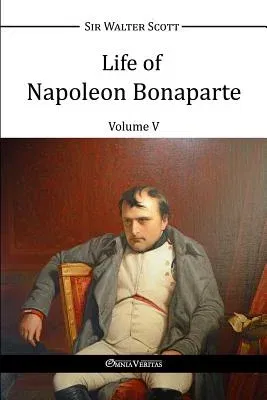Walter Scott
(Author)Life of Napoleon Bonaparte VPaperback, 26 November 2015

Qty
1
Turbo
Ships in 2 - 3 days
In Stock
Free Delivery
Cash on Delivery
15 Days
Free Returns
Secure Checkout
Print Length
594 pages
Language
English
Publisher
Omnia Veritas Ltd
Date Published
26 Nov 2015
ISBN-10
1910220833
ISBN-13
9781910220832
Description
Product Details
Author:
Book Format:
Paperback
Country of Origin:
US
Date Published:
26 November 2015
Dimensions:
22.86 x
15.24 x
3.05 cm
ISBN-10:
1910220833
ISBN-13:
9781910220832
Language:
English
Pages:
594
Publisher:
Weight:
784.71 gm

